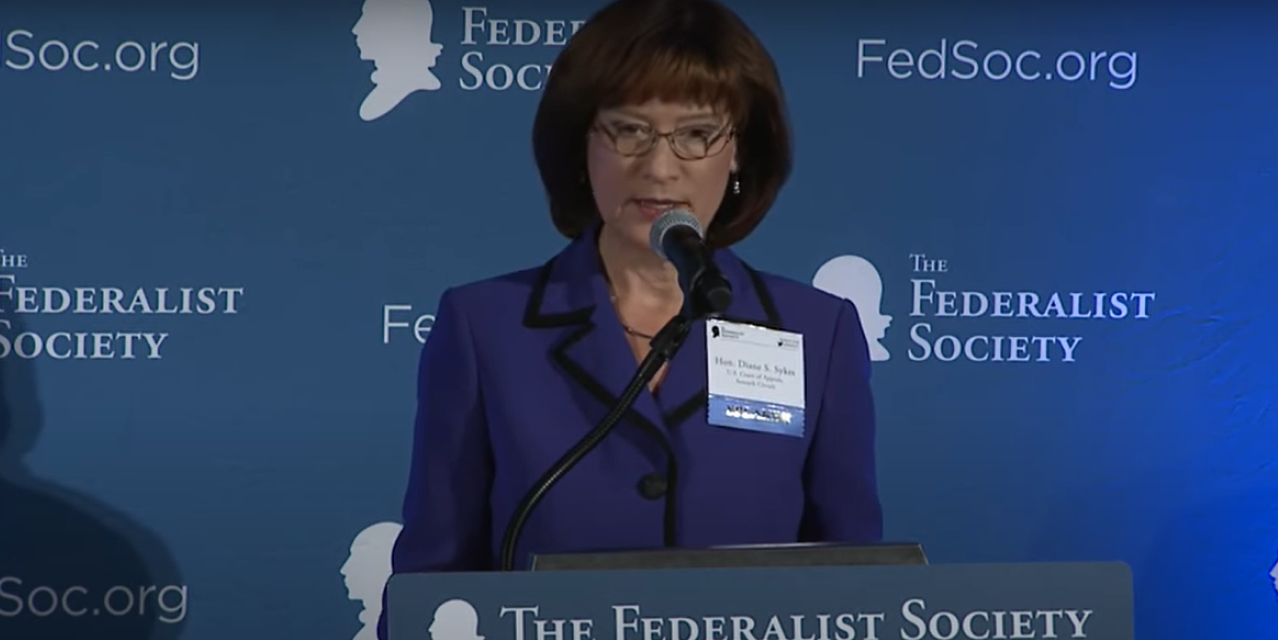A federal appeals panel has said an ex-union member can't sue the labor union for a refund of dues she voluntarily paid while a member, because a U.S. Supreme Court ruling that declared compulsory union fees unconstitutional, only pertained to fees forcibly paid to unions by nonunion workers.
The March 12 decision was penned by Seventh Circuit Chief Judge Diane Sykes, with concurrence from circuit judges Ilana Rovner and Joel Flaum, of the U.S. Seventh Circuit Court of Appeals in Chicago. The ruling favored Chicago-based Council 31 and Moline-based Local 72 of the American Federation of State, County and Municipal Employees (AFSCME), as well as other defendants in an action brought by plaintiff Susan Bennett.
Bennett joined the union when she started working in 2009 as a custodian for Moline-Coal Valley School District, which is in Moline in western Illinois.

Jeffrey Schwab
| Liberty Justice Center
In March 2019, Bennett told the union she was resigning. Her notice came after the U.S. Supreme Court delivered its ruling in the case known as Janus v AFSCME.
The Janus ruling said public sector employees, who have union representation but do not belong to the union, cannot be required to pay fees to the union for collective bargaining costs. To require payment of such fees would violate employees' free speech, by making them subsidize the union's political positions, the justices determined.
Bennett's union continued deducting dues from her paycheck until Aug. 21 2019, because her yearly authorization for deductions was irrevocable during the period from Aug. 21 one year to the next.
In U.S. District Court for the Central District of Illinois in Springfield, Bennett sued the union, the school district, Illinois Attorney General Kwame Raoul and the Illinois Educational Labor Relations Board. At that time, the board was made up of Andrea Waintroob, Judy Biggert, Gilbert O'Brien Jr., Lynne Sered and Lara Shayne.
Bennett claimed defendants were wrong to have ever deducted dues, because in light of the Janus ruling, her agreement to have deductions was from the start an unconstitutional choice between dues or fees. At the time of her lawsuit in 2019, $29 was being deducted per paycheck. Court documents do not indicate how often checks were issued.
Defendants argued Janus did not apply. U.S. District Judge Sara Darrow agreed, dismissing the case.
On appeal, Judge Sykes found Bennett's agreement to pay dues was binding.
"The First Amendment 'does not confer … a constitutional right to disregard promises that would otherwise be enforced under state law,'" Sykes said, quoting from a 1991 U.S. Supreme Court decision.
"The First Amendment does not provide Bennett with a right to renege on her bargained-for commitment to pay union dues," Sykes wrote.
Quoting a 2020 Ninth Circuit Court of Appeals decision, Sykes added: "By joining the union and receiving the benefits of membership, (Bennett) also agreed to bear the financial burden of membership."
Sykes also drew a distinction between Janus and Bennett's case.
"Janus said nothing about union members who, like Bennett, freely chose to join a union and voluntarily authorized the deduction of union dues, and who thus consented to subsidizing a union. The Court made clear that a union may collect dues when an 'employee affirmatively consents to pay,'" Sykes noted.
Sykes also determined Bennett has no grounds to complain the union's authority to represent her interests, though Bennett is no longer a member, breaches her rights to free speech and association.
"She remains free to join or support a union and to associate or not associate with whomever she chooses," Sykes said, pointing out Janus did not "question the constitutionality" of such exclusive representation.
Bennett has been represented by James McQuaid and Jeffrey Schwab of Liberty Justice Center in Chicago.
The union has been defended by Jacob Karabell, Melissa Auerbach and Stephen Yokich, of the firm of Dowd Bloch Bennett Cervone Auerbach & Yokich, of Chicago, and by April Pulliam of Bredhoff & Kaiser, of Washington, D.C.
The school district has been defended by Jason Manning and Caitlin Satterly, of Hodges, Loizzi, Eisenhammer, Rodick & Kohn, which has offices in Arlington Heights and Peoria.
Raoul and the Labor Relations Board have been defended by Hal Dworkin and Michael Dierkes of the Illinois Attorney General's Office.
The decision in the Bennett case is among a number of Janus-related court decision this year that have made unions smile.
On Jan. 25, for instance, the U.S. Supreme Court refused to address whether unions should refund fees collected for them by state governments and other public bodies from non-union public workers.
And on Feb. 25, a federal judge ruled the Chicago Teachers Union did not have to refund a year's worth of union dues to a group of teachers, saying the union did not violate their First Amendment rights by waiting nearly a year to terminate their membership and dues deductions.
